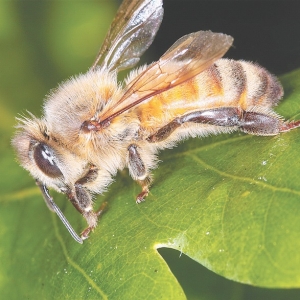“We have been totally aware of the impact of varroa and the subsequent issues over viruses and bacteria in the hive and how they impact bee health,” Federated Farmers Bees chairman John Hartnell told Rural News following publication of Otago University and INRA, France, pHD student Fanny Modet’s paper in online journal PLOS Pathogens.
“Where trouble starts is if the hive is not treated for varroa, or treated too late and varroa place huge pressure on the bee colony.”
Problems can be accentuated by poor bee nutrition, particularly lack of pollen, adds Hartnell.
“Hence for the last six years we have been driving the ‘Trees for Bees’ programme. If the hive has access to good pollen and nectar sources it has a far better chance of producing new healthy bees.”
Hartnell points out varroa’s size relative to a bee is like a dinner plate to an adult human. “So it does serious damage to the honeybee.”
His comments are echoed by National Beekeepers Association president Ricki Leahy. “Beekeepers are very aware that the first two years or so of varroa establishing in an area are the most critical.”
Otago University said the study would “provide important insights for future management of threatened bee populations world-wide” as honeybee colonies are dying at alarming rates but the exact cause, and hence how bees can be saved, remains unclear.
Modet studied the interplay of bees, mites and viruses as varroa spread through New Zealand.
Of seven virus species monitored, deformed wing virus (DWV) was the most strongly affected by varroa’s arrival. It can multiply in mites and is thought to be a direct cause of varroa-induced colony collapse, a phenomenon almost never seen in New Zealand pre-varroa.
Another highly virulent varroa-transmitted virus, Kashmir bee virus (KBV), also showed a close association with the mite but unlike DWV, KBV abundance peaks two years after an initial varroa infestation then disappears, leaving DWV as the dominant virus in long-term varroa-infested areas.
“The results of this study strengthen the idea that in varroa infested bees, multiple virus species interact to create a dynamic and turbulent pathological landscape, and that viruses play an important part in the survival or collapse of honeybee colonies infested by varroa,” says Mondet.
The researchers hope the study, which was supported by a grant from the New Zealand Honey Trust Industry Fund, will highlight the importance of beekeeper awareness, of mite monitoring, and the timing and efficiency of varroa control.
But Hartnell says most beekeepers “are fully conversant with varroa and the management practises required” and are “doing a great job”.

















